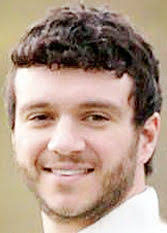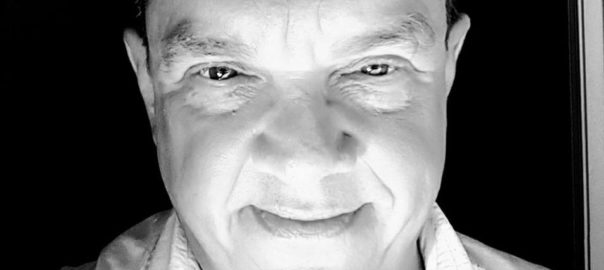Tonight, I sat pondering the tragedy that befell my community 20 hours ago, when Stephen Paddock unleashed his hate, or bitterness, or pain, or madness, or whatever upon the concertgoers in Las Vegas, taking the lives of Sonny Melton and so many others. As I did, someone posted an image of Sonny’s last Facebook check-in: a little red teardrop of a marker on a map of the city.
It is said that Edward Gibbon first conceived his magisterial History of the Decline and Fall of the Roman Empire in October 1764, as he “sat musing amid the ruins” of Rome, “while the barefooted friars were singing vespers in the Temple of Jupiter.” Gibbon was trying to understand what crumbled Rome. I’m no Edward Gibbon, but I do feel as though I am sitting amid ruins, not of a civilization, but of many lives. Were he here, looking over my shoulder, Sonny would roll his eyes and grin at this overblown allusion, but I think he would appreciate my sincerity, and I know he would not be surprised that I had written it.
The image of dots on a map will not leave me, and it occurs to me that each of us is a dot moving about. I am. You are. Sonny Melton was. The gunman, Paddock, was as well.
Paddock’s dot first appeared on the map some 64 years ago. Early on, his story is a tangle of confusion and rumor, and it may never be clarified. He roamed the earth for 35 years before Sonny Melton’s dot appeared in the summer of 1988. Since then, their two markers, each oblivious to the other, have moved on their respective paths, usually distant, sometimes closer, but never, so far as we know, approaching, until they converged in a gaudy desert oasis on Sunday night.
It is, of course, a disturbing notion that somewhere out there, sharing the world with us, is a person we know not who holds the key to our destiny. What would we do if we knew? Could we change things? Would we? In the course of a lifetime, each of us meets so many people. Nearly all of them seem harmless, and nearly all of them are. Abraham Lincoln once watched John Wilkes Booth perform in The Marble Heart, and according to legend perceived that Booth “looked a little sharp” toward him at one point in the play. Since we cannot identify all the dangers that swarm around us and since it is impossible to live the kind of happy and meaningful life that Sonny Melton lived while thinking about it, we simply tune it out and hope that all will come right. Ironically, in this case neither man ever knew that the other existed, yet their dots are now permanently fixed, side-by-side, on the same acre of Nevada.
Gibbon’s famous tale of his afternoon in Rome is, I suppose, too lofty, too high-culture an image for what has happened to us here. It would make the humble and good-natured Sonny blush, and it is too majestic for the loathsome man who took him from us. Another, more contemporary quotation from the world of popular culture is needed. One comes to mind immediately and from a source that Sonny would have approved. It is the line Sir Elton John sang in an effort to understand and explain the feckless Mark David Chapman’s senseless murder of John Lennon:
“It’s funny how one insect can damage so much grain.”
KB

